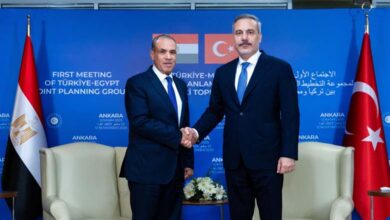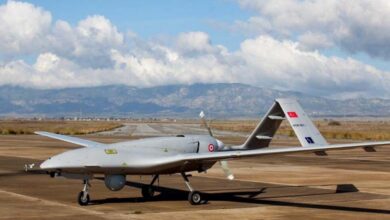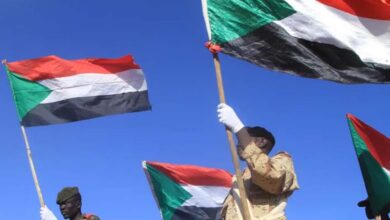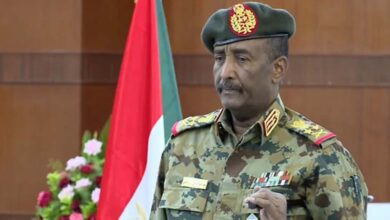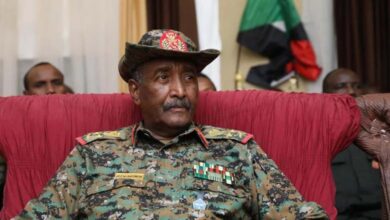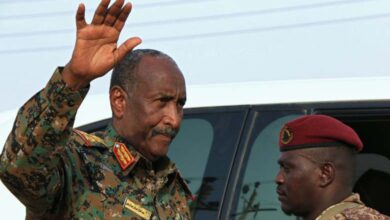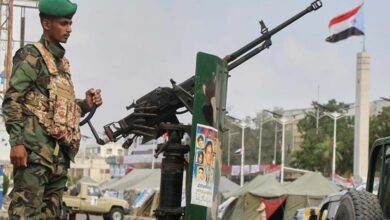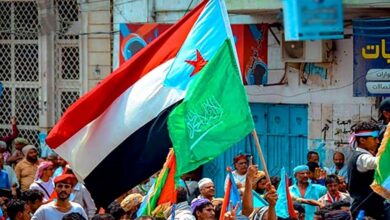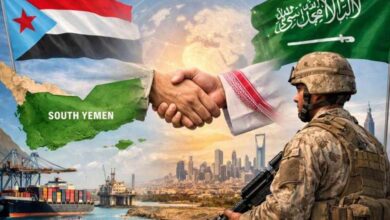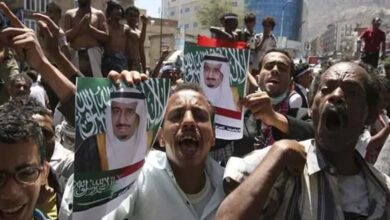Yemeni President vows to deter Houthis internally and externally

Yemen’s Presidential Command Council vowed on Thursday to defend the country’s higher interests and deter any hostile escalation by Houthi militias internally and externally.
During a joint meeting of the Presidential Command Council, attended by all its members, with senior state leaders on the council, government, parliament, and intelligence committees, the council blamed “Houthi militias for neglecting the huge benefits that the truce has brought to the citizens in the areas under their control.”
The council said in a statement after the meeting that the Houthi militias “confirm their dependence on the Iranian regime and the priority of this regime’s interest and its subversive project over the interests of the Yemeni people”.
The statement denounced “the terrorist threats adopted by the leaders of the Houthi militias against national sovereign institutions, neighboring countries, and international shipping lines,” stressing “the state’s commitment to defend the country’s higher interests and to deter any hostile escalation.”
Rashad al-Alimi, chairman of the Presidential Command Council, said, “The Yemeni government adheres to the comprehensive approach of peace in response to the aspirations of the people to restore the state and put an end to the coup, which is supported by the Iranian regime.”
The Chairman of the Presidential Command Council, members of the Council and state leaders expressed their “deep regret that the efforts of the United Nations Special Envoy Hans Grundberg to extend the truce have been hampered by the intransigence of the Houthi militias, their persistence in shedding more blood and exacerbating the worst humanitarian crisis in the world.”
The president praised “the position of the international community and its unity on the Yemeni issue,” but said that “this position is not enough to deter these Houthi militias and their supporters in Tehran.”
Al-Alimi said he was surprised by the Houthi militias’ justifications for withdrawing from the truce agreement. “The Presidential Council gave credit for exporting the salary issue to the forefront of confidence-building measures, as a presidential pledge in advance to the Yemeni people and their representatives,” he said.
Salaries are obligatory under the Stockholm Agreement, which requires militias to supply revenues from Hodeida ports to pay civil servants in areas under their control, he said.
The President of the Presidential Council presented some of the service and economic reforms led by the Council in the liberated provinces, stressing the cohesion of all national components and their agreement on the goal of restoring the state and ending the coup.
The joint meeting of the Presidential Command Council and State leaders discussed the latest developments in the internal political, economic, military and security situation and took the necessary measures.
He agreed to continue his meetings in the interim capital, Aden, to complete the reforms and entitlements of the transition period covered by the announcement of the transfer of authority.
The meeting also praised the great popular rally around the reforms of the Presidency Council, the government, and the efforts to restore the state and end the coup of the Houthi militias.
The UN truce collapsed on October 2, after Houthi militias refused to renew it and accepted a UN proposal to extend it for an additional six months, despite the government’s acceptance and unilateral commitment.


